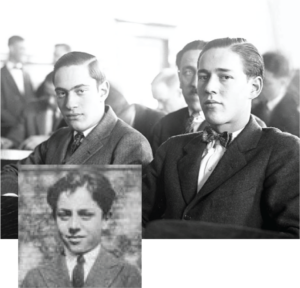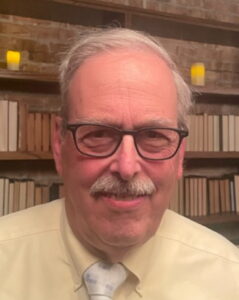Scroll Down for Registration Form

 The Leopold and Loeb trial of 1924 was one of the most famous criminal cases in American history. Nathan Leopold and Richard Loeb, two wealthy and highly intelligent University of Chicago students, kidnapped and murdered 14-year-old Bobby Franks in an attempt to commit the “perfect crime.” Their attorney, Clarence Darrow, delivered a powerful argument against the death penalty, helping them avoid execution. The case shocked the nation and sparked intense debates about morality, psychology, and justice.
The Leopold and Loeb trial of 1924 was one of the most famous criminal cases in American history. Nathan Leopold and Richard Loeb, two wealthy and highly intelligent University of Chicago students, kidnapped and murdered 14-year-old Bobby Franks in an attempt to commit the “perfect crime.” Their attorney, Clarence Darrow, delivered a powerful argument against the death penalty, helping them avoid execution. The case shocked the nation and sparked intense debates about morality, psychology, and justice.
MARK IRIS, Ph.D.
Mark Iris, Ph.D, served as Executive Director of the Chicago Police Board from 1984 to 2004. During that time, he oversaw hearings of hundreds of cases involving Chicago police officers accused of misconduct. He also took part in four searches for Chicago’s Police Superintendent.
His publications on arbitration of police disciplinary cases, crime hot spots, and police litigation have appeared in Police Chief, Police Quarterly, Journal of Criminal Law and Criminology, and other academic journals.
Dr. Iris taught undergraduate, graduate and law school classes for Northwestern University from 1985 to 2022. He is now a Lecturer Emeritus in Northwestern University’s Mathematical Methods in the Social Sciences (MMSS) Program. At MMSS, he supervised students who worked on dozens of data-driven research projects with major city police departments, including New York, Chicago, Los Angeles, Houston, Philadelphia, and San Francisco. He continues to serve as a faculty associate of Northwestern’s Center for Public Safety, teaching police managers in its Executive Management Program.
Besides his teaching and research, Dr. Iris has served as an expert witness in police-related litigation, and also serves as a member of the Chicago Police Department’s Community Policing Advisory Panel. He received his B.A. from Brooklyn College, his M.A. from the University of Vermont, and his Ph.D. from Northwestern University
Need technical or website help? Email us at
Copyright © 2025 FJMC International. All rights reserved. Website designed by Addicott Web. | Privacy Policy